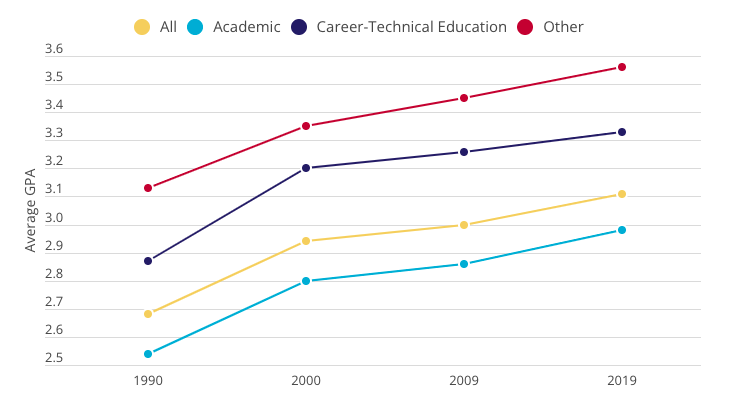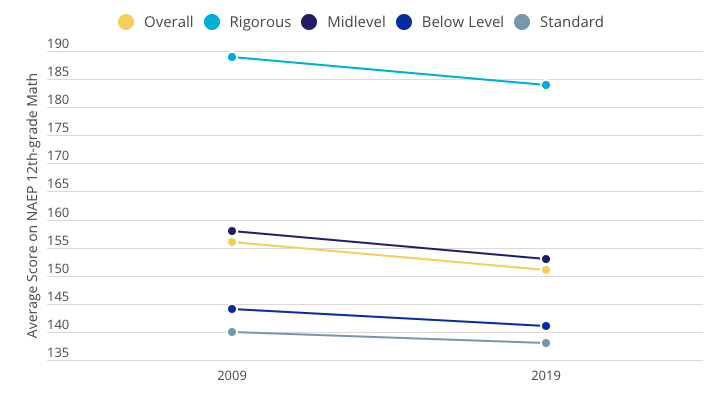Test scores for 12th graders declined despite higher GPAs
The average high school graduate in 2019 earned higher average grades and was more likely to complete at least one relatively rigorous course of study than any graduating class in almost three decades, according to a new federal transcript study first reported on by Education Week.
But performance on the National Assessment of Educational Progress (NAEP) did not reflect these improvements.
GPAs are up
The National Center for Education Statistics (NCES) analyzed the average GPA for high school graduates over 10-year spans from 1990 to 2019 and found them higher in 2019 than previous years. Grade-point averages in career-technical education, “other” (which includes courses such as physical education or world religions), and “all” were higher than academic GPAs.

Number of students taking challenging courses is up
NCES also analyzed the number of high school seniors who took challenging courses. “More students in 2019 than in 2009 or 1990 graduated high school having taken challenging courses than in prior years,” continued Education Week.
NCES counts a “standard” high school curriculum as including four years of English and three each of math, science, and social studies. A “midlevel” curriculum includes the standard, but adds at least one world language class; math must include geometry and algebra; science must include at least two of biology, chemistry, and physics. A “rigorous” curriculum includes four years of English and math (including precalculus or higher); three years of social studies and science (including biology, chemistry, and physics); and three years of foreign languages.
Test scores still in decline
But regardless of higher GPAs and course rigor, the average score on NAEP dropped from 2009 to 2019.

Twelfth grade NAEP performance in math has declined significantly over the last decade, “even for students taking midlevel or rigorous courses of student,” continues Education Week. “Only 2019 graduates who took math classes up to calculus performed on par on NAEP math with their 2009 peers.” Reading scores in 2019 also dropped compared to 2015.
False advertising on rigor?
According to a separate NCES study, gaps in course content could contribute to the discrepancy between grades and performance. The study analyzed courses that schools promoted as advanced and found the content didn’t measure up to that level of rigor.
Given that this study was pre-COVID, it will be interesting to see how student performance is impacted based on distance learning and online course selection.